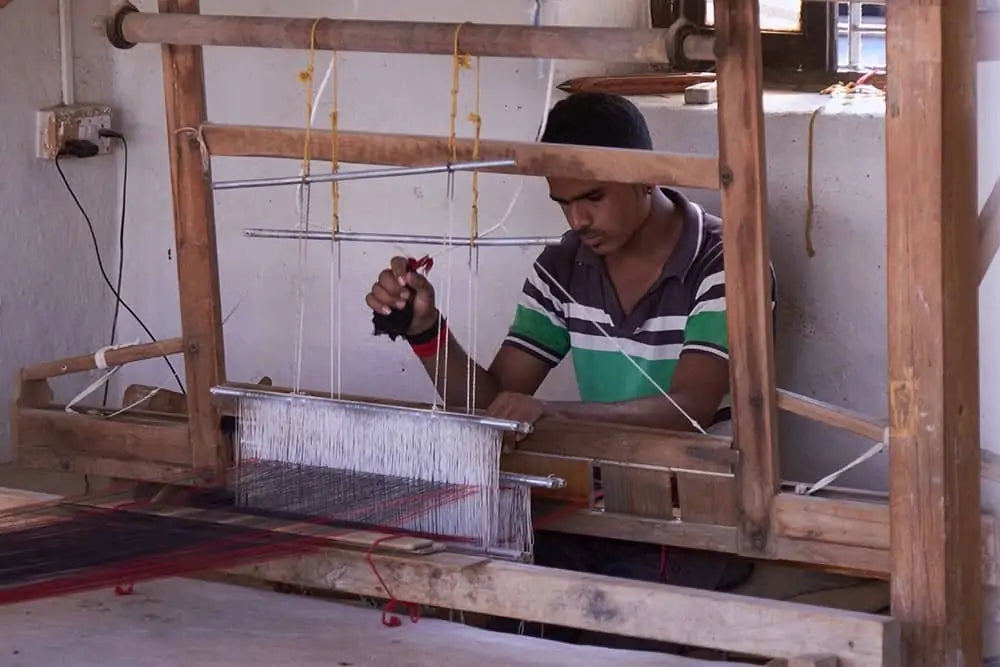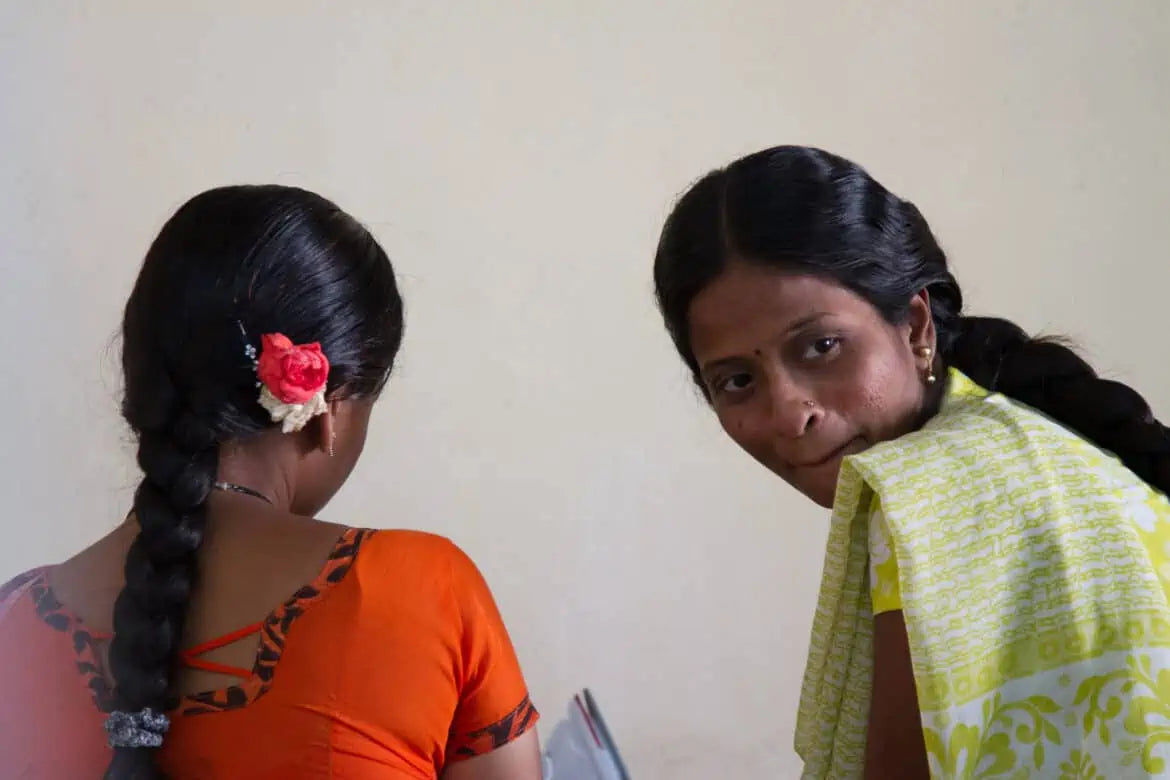Is fair expensive?
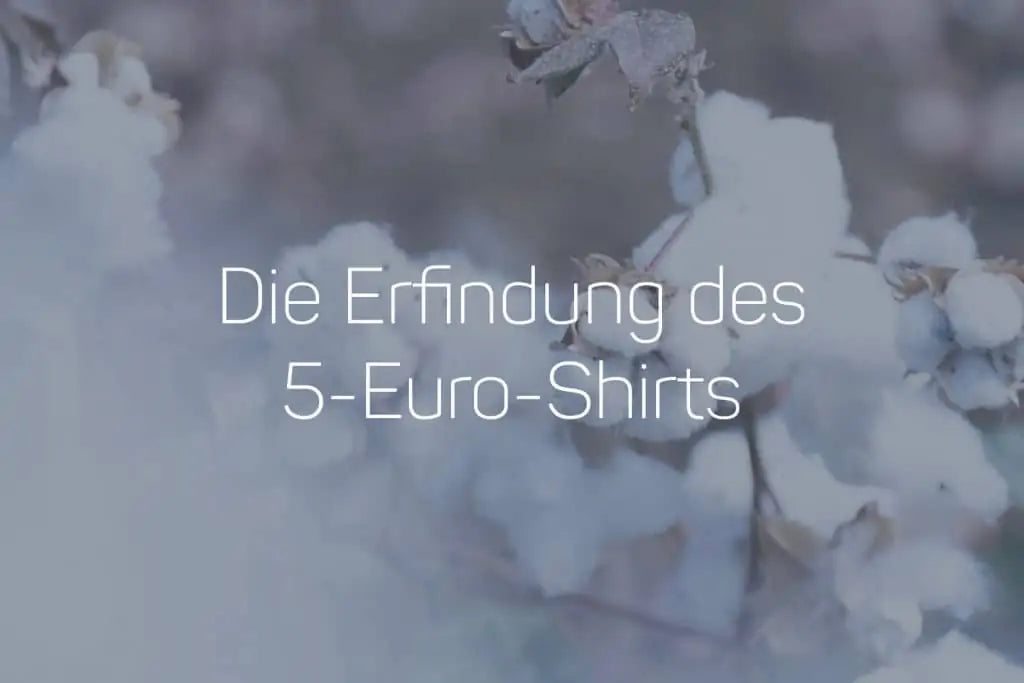
Handwoven, hand embroidered, hand printed. And all fairly produced. That sounds pretty expensive. In fact, the price difference between conventional clothing from certain Swedish or Irish textile companies and fairly produced clothing is often a shock (including for us!). Fair clothing is often simply not possible in tight budgets.
Really? Is fair clothing really too expensive? Or are we, those born after 1980, simply screwed up? When we became teenagers and first invested our hard-earned pocket money in cool tops and skirts, we could buy three party outfits for 50 euros. We grew up with dumping prices. Maybe, just maybe, conventional fashion is simply too cheap?
The Invention of the 5 Euro T-Shirt
It may sound surprising, but T-shirts have not always been available for the price of a lactose-free latte macchiato. But since when has that been the case? And why?
Over the last 40 years, the textile industry has been completely restructured - to an extent and at a speed that is difficult to comprehend. Since the 1960s and especially the 1970s, labor-intensive production, especially the textile industry, has been outsourced to what we know as "low-wage countries". The textile industry was particularly well suited to this: on the one hand, it is the most labor-intensive industry of all - no other sector (apart from agriculture) requires as much human labor as the manufacture of clothing. On the other hand, it is not very "capital-intensive", which means that you only really need the relatively cheap sewing machines and no technology at all.
Race to the bottom
It is this "mobility" that allows the textile industry to become cheaper and cheaper. And that makes it almost impossible for the producing countries, which urgently need the jobs, to negotiate better conditions. When resistance to this type of exploitation slowly grew in China and wages rose a little, the companies moved to Bangladesh! When the world's attention turned to Bangladesh after the collapse of the Rana Plaza factory and minimal improvements were made for the workers there, the big move to the almost unregulated Myanmar began.
Total flexibility
This outsourcing, the "globalization of production", is only one - admittedly central - part of this total restructuring. Because it is not just about the cheap wages or the lower environmental and employee standards. It is above all about the magic word: flexibility! Because only a fraction of the fashion companies that are based in the USA, Sweden, Ireland or Germany actually build a workshop in Sri Lanka to have their clothes produced there at low wages. If that were the case, it would be much easier to get the companies to comply with certain standards and pay better wages. Instead, the companies award contracts to local entrepreneurs - to the one who offers them the cheapest price. These entrepreneurs then either have the ordered garments produced in their factory or award the contract themselves to even smaller workshops or workers who work from home. Of course, again to the one who offers the lowest price. This is how fashion companies are, as flexible as possible: They look to see who can offer them the best deal on jeans, where they can get the cheapest knitted sweaters and where they can find the cheapest T-shirts. They do not enter into any obligations: They do not employ seamstresses whose rights they would have to protect, nor have they made any investments that are supposed to pay off. And: How and where their clothes are ultimately produced is something the companies often cannot - and do not want to - know.
All that glitters is not fair… or something like that
Okay, 5 euros for a T-shirt just doesn't work. But if I spend a lot of money on my clothes, then the seamstresses must be well paid and the companies must be able to comply with safety standards, right? You would think so. But unfortunately it's not quite that simple for consumers. Unfortunately, expensive sports shoes and branded clothing are also manufactured under similar, sometimes exactly the same conditions as the usual suspects. Clothing for a wide variety of brands is produced in the huge factory halls, often cheap jeans next to branded trousers. The price alone says nothing about the story behind the clothing. You have to look at each company individually. Since the textile industry is not very transparent, this is not an easy task.
So it doesn't matter? Can't we just buy the cheap, unfair clothes? No! It's time to realise that clothes have value, that work, time and materials go into them. And it's time to understand that your 5 euro T-shirt is not normal. Even if not every expensive item of clothing is fairly produced, the willingness to spend more money on clothes and buy fewer items is the prerequisite for seamstresses being paid fairly, the environment not being destroyed and companies being able to act socially.
Fair, fair, fair… What actually is fair?
Fairness towards our seamstresses
We offer our women permanent employment with a salary that allows them to support themselves and their families, as well as paid vacation. They work five hours a day, so that they can easily combine work and family. It is particularly important to us that employment at Jyoti - Fair Works does not make them dependent. For example, we use our income to finance literacy and training courses for the women. We place particular emphasis on issues such as health, women's rights and workers' rights.
fairness towards our partners
We work together with all our partners and those involved in the production process in a spirit of partnership and equality. We source our materials exclusively from cooperatives and small family businesses that we know personally. This way we can ensure that not a single cent is swallowed up by large corporations or middlemen, but actually reaches the producers and supports their craft.
fairness towards you
For us, this means showing customers transparently where and how the product they have purchased is produced. In this way, we want to involve our customers in the creation process of their products and give them a new sense of their complexity and value.
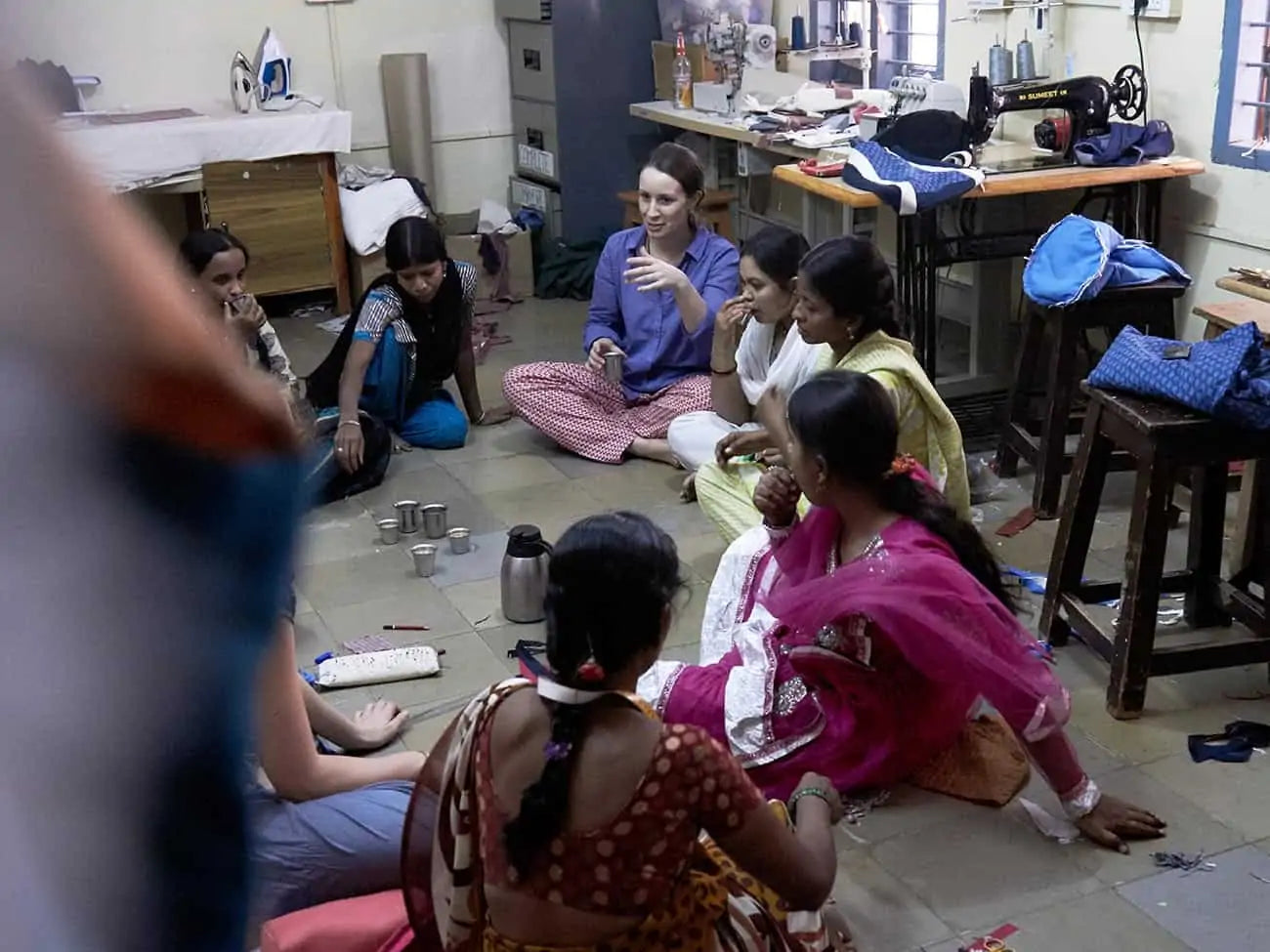
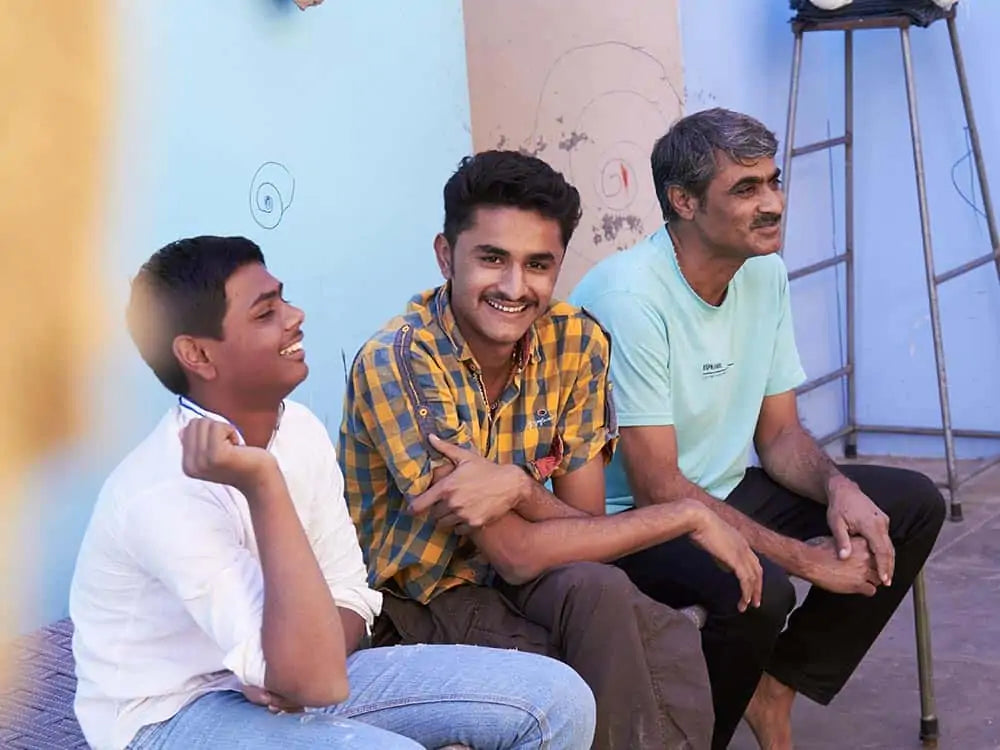
“What Fair Trade means to you is not Fair Trade to us”
Interview with Latha (open)
We met Latha, who is responsible for design and public relations at our partner Dastkar Andrah, and talked to her about her company and the issue of certificates.
Why was Dastkar founded?
The original idea was to support the local economy by promoting traditional weaving. Over 200,000 weavers in the villages around Hyderabad depend on this craft. The problem is that they can no longer sell their fabrics on the local market because the competition from China or even Great Britain is simply too strong. That's why we decided to work with various cooperatives and take over marketing and order management for them.
How does this work exactly?
We work with 22 cooperatives in 7 districts. All of these cooperatives were founded in the 1960s because the weavers can negotiate better prices together and save costs. The weavers all work from home. The cooperatives have a board that is re-elected every four years. We work with them. We collect the orders, for example from you, and pass them on to the cooperatives because we as Dastkar know which weavers can produce which designs and colors. The cooperatives set the prices.
And where do the cooperatives get the cotton or yarn?
It is impossible to say which cotton plantation the cotton that our yarn is made from comes from. In India, most cotton farmers give their harvest to large, state-controlled middlemen. The cotton is thrown into a pot to be cleaned and then passed on to large spinning mills. It is therefore impossible to trace it back to the field.
The cooperatives purchase the yarn directly from a yarn seller in our region, without any other middlemen. The yarn is then dyed in dye works, some of which also belong to the cooperatives. We only use chemicals that are also permitted by GOTS.
But Dastkar's fabrics are not certified. Why?
We sell almost exclusively within India and have one Japanese customer, so nobody asks about it. Our partners value the "soul" of our hand-woven fabrics, which are not machine-made perfectly, meter by meter. Every fabric is made differently and has a different story, and knowing that is much more important than a certificate. In addition, such a certificate and the processes that go with it cost a lot of money. Only a few customers are aware of that. In fact, what fair trade means to you is not fair trade to us!
Do you think global standards are not as clear as they appear to the Western customer?
Yes, exactly! Customers only want their “fair” and “sustainable” seal, but no longer ask what actually goes into the production of the clothing. These are complicated questions. For example, child labor. Of course it is horrible when children are exploited and mistreated, or when they cannot go to school because they have to keep entire businesses running with their unpaid work. But it is particularly important to learn when you are young, especially in the handicrafts that many of these small villages make their living from. This starts with watching your father as a child and later helping him – and yes, working too. The supposedly clear “fair trade” stamp does not allow this. It is not just black and white.
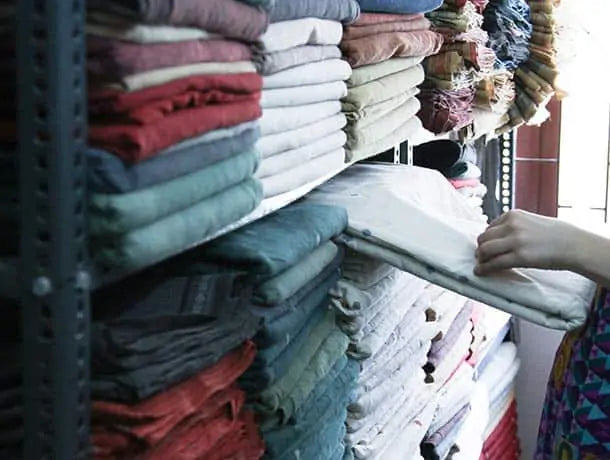
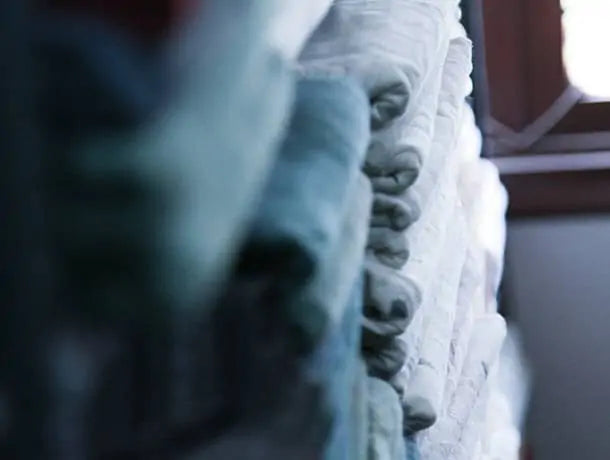
Fair is worth its price.
To reiterate: the 5 euro shirt was not always the norm. It seems cheap, but it is expensive! The real price is paid by seamstresses, fabric producers, cotton farmers and the environment. It is therefore time for us to become aware of what clothing is worth, how much work goes into it and to be prepared to spend more money on fairly and transparently produced clothing. Because yes, ensuring that everyone involved in the value chain of our clothing works under fair conditions costs money. And yes, that is why fairly produced clothing often costs more than conventional fashion. But we will simply say quite boldly: it is worth the price.


